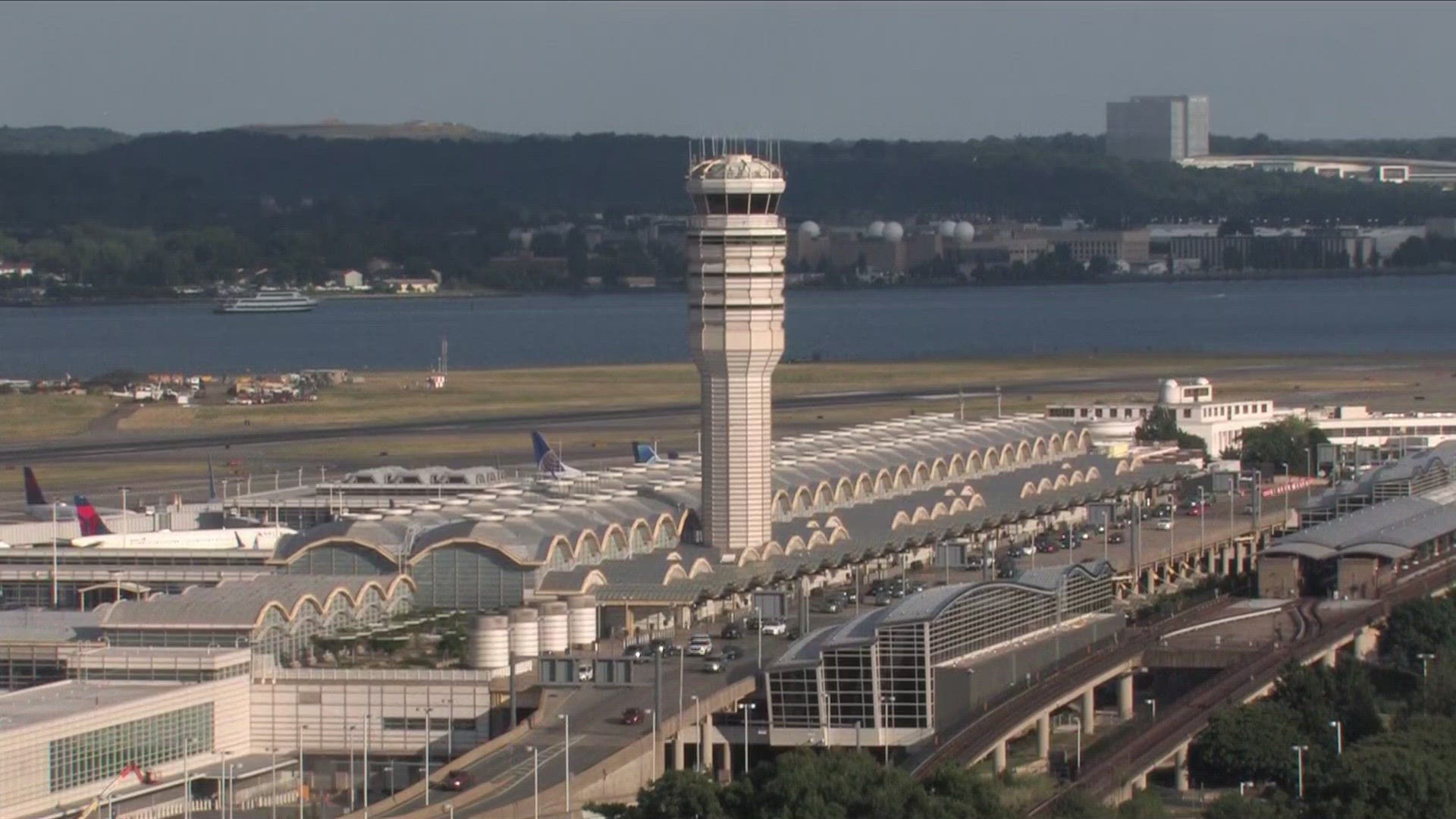WASHINGTON — Things may be getting back to normal after a ground stop at all D.C.-area airports was ordered on Sunday evening by the Federal Aviation Administration.
The FAA ordered a ground stop at all DC-area airports due to the need to repair communications equipment earlier in the evening.
"The FAA has paused departures to D.C.-area airports while repairs to a communications system are made at Potomac Terminal Radar Approach Control facility. The facility has switched to a backup system," the FAA told WUSA9 around 6:15 p.m.
That ground stop was expected to last until 7 p.m. ET, according to the FAA's website.
The airports affected in that ground stop included Reagan National Airport (DCA), Dulles International Airport (IAD), and Baltimore–Washington International Airport (BWI).
The FAA tweeted at 6:49 p.m. that "flights from the West Coast, Midwest and Florida bound for D.C.-area airports have resumed."
Around 7:15 p.m., the FAA said to WUSA9 that, "departures to D.C.-area airports have resumed and repairs to the communications power panel are complete. During the repairs, a back-up system handled communications safely. Normal operations are resuming."
After the ground stop, IAD listed a "departure delay" with average delays between 15 and 90 minutes, but that has been resolved.
Then, DCA again had a ground stop listed on the FAA's website due to "airport volume." The FAA's website said that new ground stop was expected to be in place until 9:30 p.m. ET. But by 8:40 p.m., that ground stop was no longer listed.
Anyone wondering about flight statuses should check with their airline for the latest updates.
Just when service seemed to be back on track with new lines completed, new stations open, and ridership starting to return, Metro is facing cuts that could be the beginning of the end for transit in the DMV.
On Thursday, Metro detailed its future financial planning to address structural funding issues that will leave a projected $750 million shortfall in the fiscal year 2025 budget when federal COVID relief funding runs out. Without an increase in funding, Metro would be forced to make drastic cuts.

